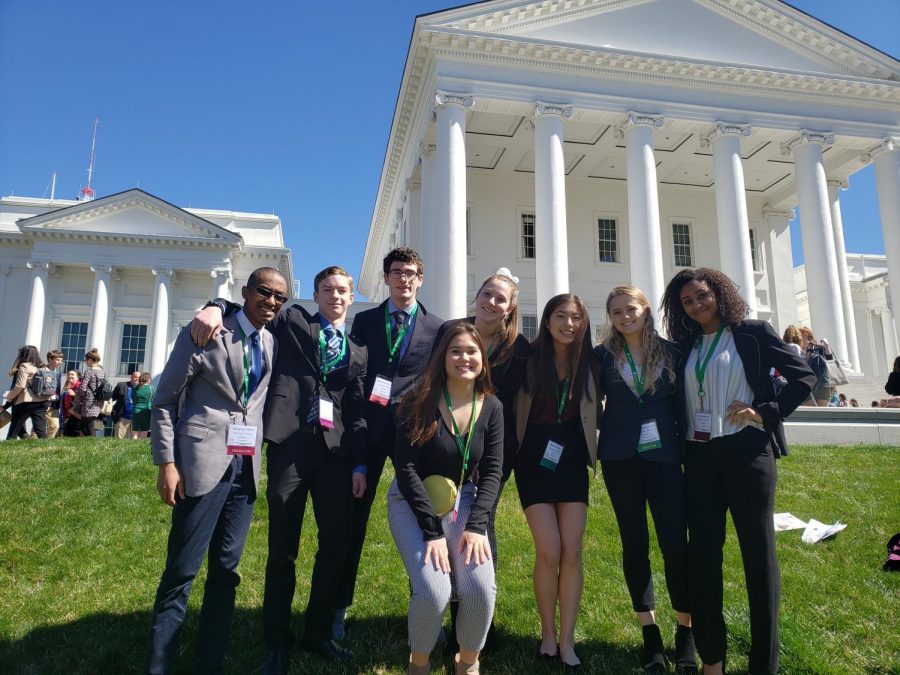Autism Awareness Day: Autism is a Spectrum
Isaiah (the author) is 3rd from left on a field trip with the Model General Assembly in March. This year’s team got Virginia’s Youth Governor to sign two bills: restoring voting rights to former felons, and amending the definition of Hate Crimes to include crimes against the members of our LGBTQ+ community.
Today (Tuesday, April 2nd) is Autism Awareness Day. Even though Autism sounds like a singular condition, it is in fact a diverse range of behaviors and ways of experiencing the world (which is why it is officially known as “Autism Spectrum Disorder”).
A common saying is “if you’ve met one person with autism, you’re met one person with autism.” This means that Autism affects everyone differently. I have Asperger’s syndrome, which is considered to be a mild form of Autism, while another kid might have a more severe form, or occupy a grey area in between the two. Perhaps more than any other condition, it affects everyone differently. And yet, we all share some similarities. We all act in ways that can be considered unexpected or weird. We all misunderstand social interactions. And there is a lot more to all of us than is on the surface.
This idea is best captured with the concept of neurodiversity, which means that there is no “normal” and that mental conditions or disorders are simply different ways of thinking and being. Autistic people have varying struggles and strengths, many of which are not immediately apparent on the surface. However, that is ultimately beside the point, which is that people on the spectrum are still people and deserve to be respected as such.
Basically, Autistic people are different, not less.
The concept of neurodiversity is also intended to be inclusive of people with Down Syndrome, ADHD, Dyslexia, and other mental disorders. *Note about mental illnesses & neurodiversity: The idea of neurodiversity can also be extended to mental illnesses such as depression, anxiety, and schizophrenia. Mental health is a topic that definitely needs more awareness on, and it is crucial to be supportive of people that struggle with these. However, an important distinction to make is that Autism is a lifelong neurological disorder, while mental illnesses, such as depression, may not be.
Wakefield has taught me to appreciate diversity, and one of the things I love about this school is the variety of cultures and backgrounds. Wakefield draws it’s strength from ethnic diversity, and I think it can also draw strength from neurodiversity. Ultimately, the goal of neurodiversity awareness should not be to cure these conditions but to allow people with them to live as independent a life as possible.
The best thing you can do to support individuals on the Autism spectrum or other disorders is to simply not judge people who act in ways that you might think are “weird” or “unexpected” because it makes sense to them.
Today is a day to celebrate the diversity of minds at Wakefield. Have a great Autism Awareness Day everyone!



